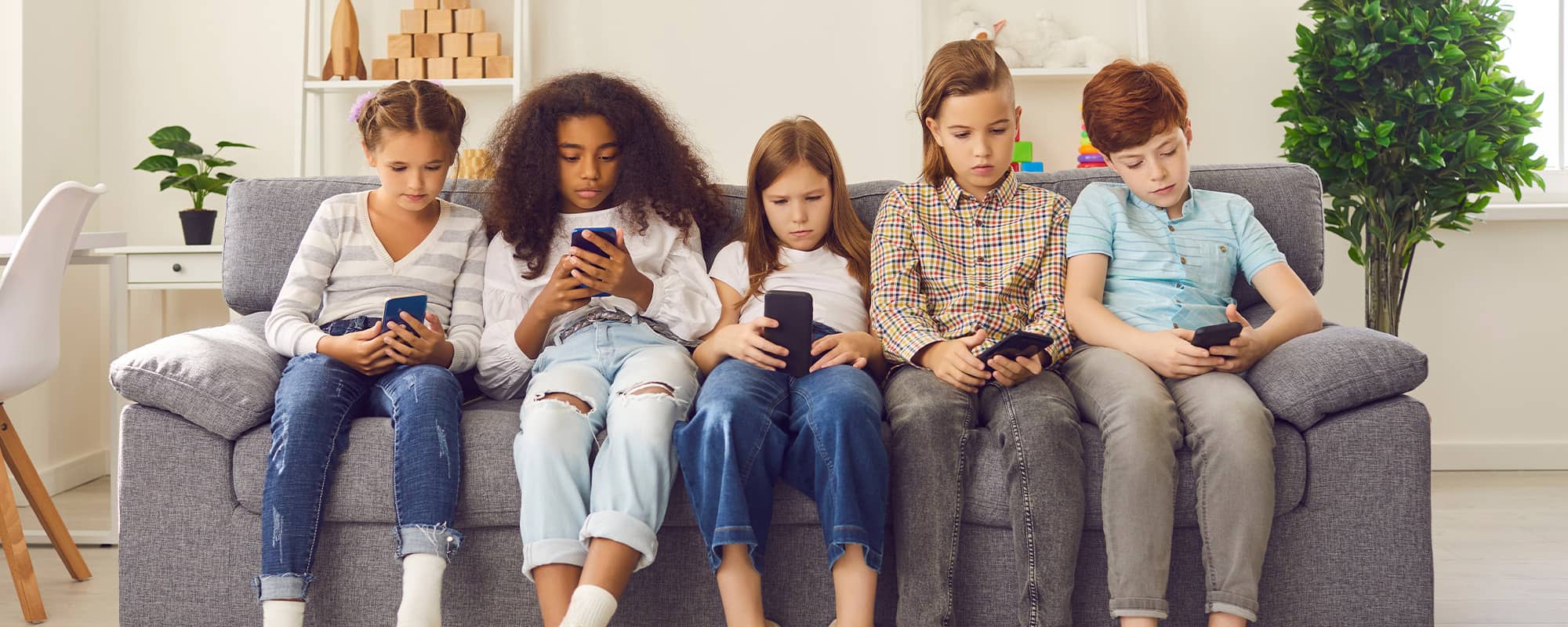More than 80 percent of adults say they get anxious when they don’t have their smartphone close by. And of course, that is what the tech companies want.
In fact, it’s their business model: ‘return to service’.
The smartphones, tablets, laptops and all the apps you run on them are designed to be user-friendly and addictive. How many times have you heard someone say “I can’t live without it”? Of course, you can live without your device, but it is designed to make you feel like you can’t.
What about the benefits?
You might be thinking “Sure, but this new tech is making our lives better, so it doesn’t really matter, does it?” But it does.
Are those people sitting at the beach looking at their devices really better off than the ones watching their kids play or chatting to their friends? I don’t think so. In truth, simply being ‘on’ a device increases our stress levels. Research shows that even having a device close to us subconsciously attracts our attention. Is increased stress and reduced ability to attune to the real world really better?
Our intelligence is dropping!
Even more concerning, these smart phones are making us less intelligent! Our brains constantly change and adapt. It is called neuroplasticity. Your brain today is ever so slightly different to the brain you had yesterday. Some connections have been made stronger and unused connections have been weakened. This happens constantly – based on what we are doing both mentally and physically. It is how we learn.
On the flip side, it is also how we forget. Ever heard the phrase “use it or lose it”? It is important for the brain as well as our bodies. The problem is smart phones are now doing a lot of things we used to do for ourselves. When was the last time you navigated to a new location without using your smartphone, or calculated something in your head, or remembered a meeting without your online calendar, or just sat and contemplated life? If you don’t use it, you will lose it!
Old school is best
To give you an example, London Taxi drivers are required to memorise the road map of London and the best way to get from A to B. It’s called ‘doing the knowledge’. In 2002, tests showed that the area of the brain involved in memory of places and locations (the parahippocampus) is larger in London Taxi Drivers than in a control group.
This study showed that using this skill changed their brains. Fast forward to today and there’s a problem. We no longer navigate anywhere. We use wayfinder apps on our smart phones. These apps tell us when to turn right or left and when we have arrived. Our navigational abilities – and the relevant area of our brains is diminishing.
Time to get social
Other areas of concern are the social areas of our brain. We are social animals. We have evolved to seek out and be supported by our friends and relatives. In the days when the world was much more dangerous, this was important. We had to worry about warring tribes and hungry animals. Being part of a large group was essential for survival. Our brains still require that contact and connection.
But our addiction to devices means that even when we are sitting in groups we are often no longer interacting. Social media means we have thousands of virtual ‘friends’ and hardly any real ones! We are no longer using many of these important social areas of our brains. As with all other under-used areas, neuroplasticity means these faculties are steadily diminishing.
It has been shown that by the end of the first year of life, babies whose carers regularly use smartphones have poorer facial expression perception abilities. Even more concerning is that primary school children show a significant decrease in their facial expression perception when they use screens regularly compared to those who don’t. And children who learn to read on screens have significantly less white matter tracts (important connections between brain areas) than children who learn from real books.
Attention is the big loser
The effect of devices like smartphones on our attention is really significant. Attention is essential for maintaining our focus, processing, understanding, and learning. And those notifications that you get on your devices from email, Facebook, Messenger, LinkedIn, Instagram etc. negatively impact your attention.
They are very cleverly designed to force your attention to the device and away from the real world. Turning off all these notifications is an easy step towards getting back control of your attention, your time, and your productivity, and to decrease your stress levels!
What is really concerning is that many studies have shown a relationship between screen use and attention deficit hyperactive disorder (ADHD). The earlier a child has access to a smartphone, the more likely they are to be diagnosed with ADHD, and the longer they spend on the device the more likely they will have symptoms associated with ADHD.
Decrease in Drugs/Increase in Depression
An interesting bi-product of our current device addiction is that drug-taking amongst teens is at its lowest since the 70s. Although some of this might be due to good drug education, research suggests it is also because many teenagers now prefer to be on social media than out in the real world.
The sad consequence is that depression is at an all-time high. Since smartphones and social media appeared, depression and anxiety in teenagers has increased dramatically. There is also a strong correlation between the hours spent on social media and likelihood of suicide.
Future-proofing your kids
I often hear from parents that kids need to have access to devices because they need to learn how to use them responsibly. Such an argument doesn’t really work! Using devices sensibly and understanding the dangers can be taught without giving them access – we restrict access to sugar, alcohol, gambling, drugs, cigarettes, and driving. Nobody argues that 12-year-olds should be allowed to go to the pub so we can teach them responsible drinking!
Smartphones are addictive, they increase the likelihood of depression, ADHD, stress, anxiety, and suicide. They negatively impact on brain development, and they enable potential access for bullies, trolls, scammers, paedophiles, and radicalisation. There are far more dangers on their smartphone than down at the local skate park, yet many parents give their kids unlimited access to their device.
What should kids be doing?
Did you know that Bill Gates and Steve Jobs are reported to have raised their kids technology free! And schools that limit technology are in demand in Silicon Valley. Why? Because people in the tech industry realise that the next big invention or leap forward won’t come from somebody who is great at coding or taking selfies.
It will come from someone who is curious, inquisitive, adaptive, resilient, and social. And the jobs of the future will need people with these qualities. They won’t be learnt on a smartphone. They will be learnt by playing sport, climbing trees, learning a musical instrument, playing imaginative games with their friends, and interacting in the real world.
Where to next?
Now consider the many things that your smartphone is doing for you. Where will this end if we don’t take back control? A small brain that is able to search the internet and respond to pings from a ‘smart’ device but not able to think, to remember, to show empathy or socialise with friends?! Take back control and foster real relationships today.





